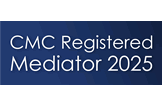
All About People
Need help to resolve your business, personal or employee conflicts & disputes?
Stay up to date with our latest news and workshops.

One of the most effective conflict resolution skills is the ability to identify and address issues early. Often, small frustrations or misunderstandings are left to simmer, leading to bigger, more complex problems down the line. Nipping these issues in the bud is a hallmark of a proactive professional.
For example, if a colleague’s tone in emails feels abrupt, it’s better to clarify intentions early rather than allowing assumptions to create resentment. Early intervention often diffuses tension before it has the chance to escalate.
While every situation is unique, these core skills provide a strong foundation for resolving conflicts effectively in the workplace:
1. Active listening
Listening is more than hearing the words someone says; it’s about truly understanding their perspective. Active listening involves:
• Giving your full attention.
• Summarising what you’ve heard to confirm understanding.
• Avoiding the temptation to interrupt or immediately defend your position.
When people feel heard, they are more open to finding common ground.
2. Using ‘I’ statements to get to a ‘We’ outcome
When addressing conflict, use ‘I’ statements to express your perspective without assigning blame. This reduces defensiveness and encourages dialogue.
For example:
• Instead of: ‘You never listen to my ideas in meetings.’
• Try: ‘I feel like my ideas aren’t being heard during our meetings.’
To reach a ‘we’ outcome, state your ‘I’ interest and connect it to shared goals. For instance:
• ‘I feel like my ideas aren’t being heard, and I’d like us to create a space where everyone’s contributions are valued.’
This approach fosters mutual understanding and collaboration while preserving your individual needs.
3. Emotional intelligence
Conflicts often trigger emotional responses. Emotional intelligence – the ability to recognise, understand, and manage your own emotions while being mindful of others’ feelings – is crucial. Practising empathy, staying calm under pressure, and responding thoughtfully can prevent unnecessary escalation.
4. Focusing on shared goals
In the heat of a disagreement, it’s easy to lose sight of the bigger picture. Shifting the focus to shared goals – such as completing a project or maintaining a positive team dynamic – can help both parties work collaboratively towards a resolution.
5. Knowing when to involve others
While many conflicts can be resolved one-on-one, some situations benefit from a neutral third party. This could be a manager, an HR representative, or an external mediator. Recognising when professional support is needed is an important skill in itself.
Imagine this scenario: Two colleagues are struggling to work together on a project due to differing approaches. One prefers detailed planning, while the other prioritises flexibility. The tension grows, affecting the project’s progress and team morale.
Using the skills above, one colleague decides to address the issue directly. They arrange a one-on-one conversation, actively listen to their counterpart’s perspective, and express their own concerns using ‘I’ statements. Together, they identify a shared goal to get to the ‘We’ outcome – delivering a successful project – and agree to compromise by blending their styles.
This proactive approach not only resolves the immediate conflict but also strengthens their working relationship for future collaborations.
Strong conflict resolution skills are more than just tools for diffusing tension – they are career-enhancing assets. Professionals who can navigate workplace challenges with confidence are more likely to:
• Build stronger relationships with colleagues and clients.
• Contribute to a positive and productive team culture.
• Position themselves as leaders, even without formal authority.
Most importantly, these skills foster a sense of trust and collaboration, helping teams achieve their goals more effectively.
The ability to handle workplace disagreements constructively is one of the most valuable skills any professional can develop. At All About People, we’re committed to equipping individuals with the tools and confidence they need to address conflicts effectively.
Whether it’s through training, coaching, or bespoke support, we’re here to help you navigate the challenges of workplace dynamics with professionalism and poise.
Posted: 8th March 2025

Strategic Advice and Guidance for you and your organisation. Our accreditations:




Stay up to date with our latest news and workshops.